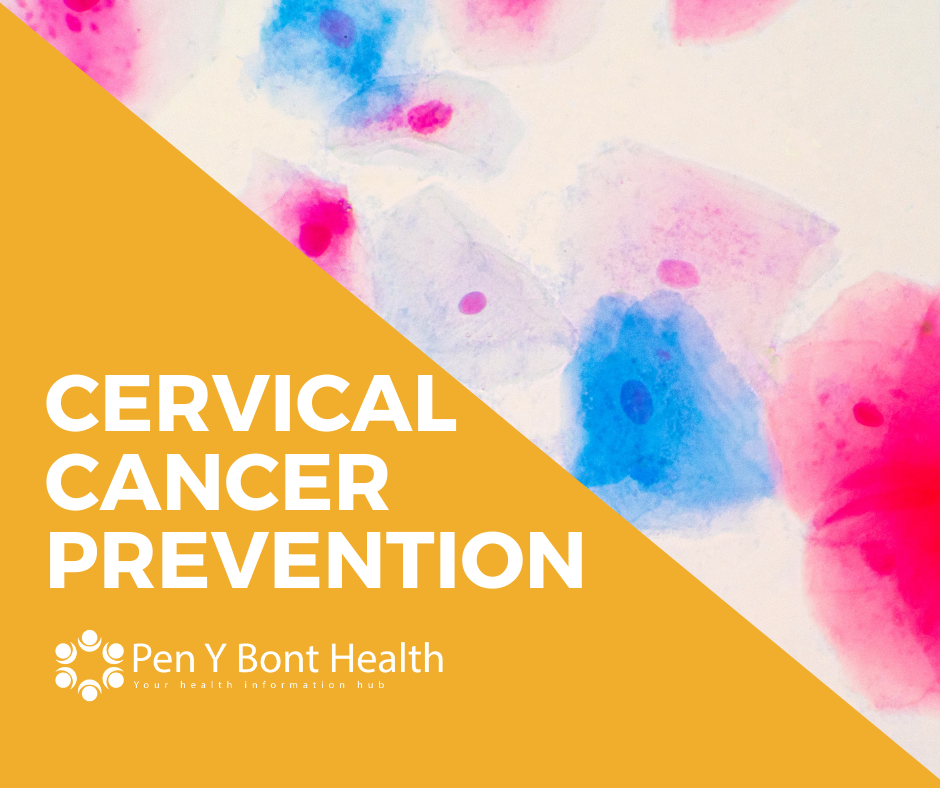
Did you know that cervical cancer is the most common cancer in women under the age of 35? Unfortunately, around 160 women in Wales are diagnosed with cervical cancer each year. This month is Cervical Cancer Prevention Month, we hope to share knowledge about the cancer so more awareness is created. It is important to note that when caught early, the cancer can be treated with a surgery to remove the womb, this is called a hysterectomy. More advanced cancer may need surgery as well as rounds of chemotherapy and radiotherapy, however as long as you attend your cervical screenings the cancer should be caught early.
The majority of cervical cancers are caused by a human papillomavirus (HPV). HPV is an extremely common virus that will affect around 80% of the population in their lives. The HPV virus lives on our skin, this means it is extremely easy to catch and extremely difficult to protect against. Like many viruses, most of the time you will not know you have or have had a HPV infection as you will have no symptoms and you immune system will simply kill if off. As well as the skins surface, HPV thrives in moist environments such as the lining of the mouth and throat, the vagina, the cervix, and the anus.
Just like we have found with Coronavirus, there are many variants of HPV, around 200 to be exact. Out of these, it is thought that approximately 40 variants affect the genital areas of men and women and can be sexually transmitted, not all of these result in cancer.
Attending your Smear Tests
The best thing you can do to protect yourself against cervical cancer is attending your cervical screening appoints for a smear test. Screening is not a test for cancer but sometimes it does pick early cancers up. The smear test takes cells from the wall of your cervix (neck of the womb) to check for high risk HPV. If you are found to have HPV cells present in your cervix you will have what is called an abnormal result. An abnormal result does not mean you have cancer, most of the time it means you have HPV, treatable cancerous cells or both. If you are HPV positive, your immune system will likely clear up the infection within 2 years, meaning you may not develop cervical cancer. When someone is HPV positive, their GP may want them to attend a more regular cervical screening so they can monitor their cells.
Symptoms of Cervical Cancer
Often, there are no symptoms of cervical cancer. Of the people that do report symptoms the most common is abnormal vaginal bleeding, unusual vaginal discharge, pain during sex or lower back pain. These symptoms are also common for several different conditions so, do not instantly think you have cervical cancer if you experience any of the above. It is recommended if you experience any of those symptoms that you see your GP immediately.
The new Cervical Screening Wales Programme for 2022
From January 1st 2022, Cervical Screening Wales have changed when they will be inviting people with a cervix for a smear test. As long as no abnormal HPV is found at your next cervical screening, you will be sent a new invitation for 5 years time, regardless of your age. People should not be concerned by this increase in time between testing as evidence tells us that the risk of developing cervical cancer within 5 years, when you have no HPV present in your cervix, is very low. It actually takes around 10 to 15 years for HPV to develop into cancer after infection, in this time you should have at least 2 smear tests. Women and people with a cervix are still encouraged to seek advice from their GP is between cervical screenings they experience unusual vaginal discharge or bleeding after sex, between periods or after the menopause.
